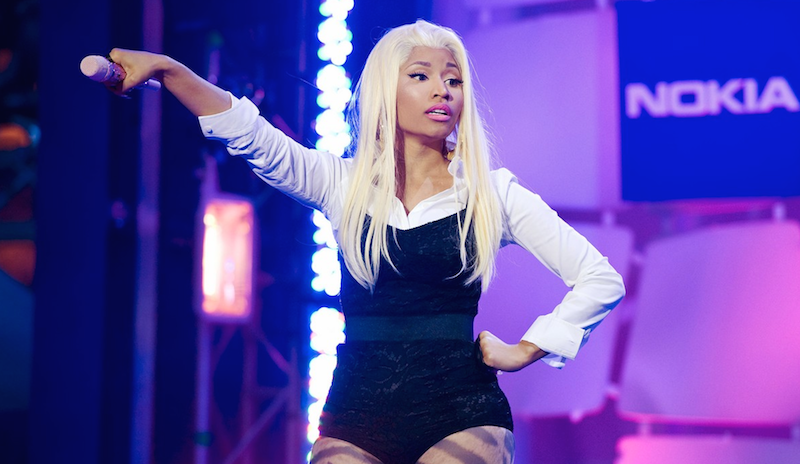Erica Santiago / Contributing Writer
MTV aired the 31st Annual MTV Video Music Awards on Sunday, August 30, and the most iconic moment of the night occurred when Nicki Minaj pointed to VMA host Miley Cyrus and called her a “b-tch” on live television. The exchange between the two pop-stars highlighted an ongoing issue that occurs within feminist circles – the silencing and tone-policing of black women at the hands of white feminists.
The feud started when Minaj called out the VMAs for failing to nominate her hit “Anaconda” for Video of the Year. On Twitter, she pointed out racist double standards in the entertainment industry by stating “Black women contribute so much to pop-culture but are rarely rewarded for it.” She also commented on how videos featuring “slim” bodies are likely to get rewarded while videos glorifying thicker bodies are seen as obscene. This did not sit well with Cyrus who claimed that Minaj was “too angry” in her comments for her to be taken seriously.
“If you do things with an open heart and you come at things with love, you would be heard and I would respect your statement,” Cyrus said in an interview with the New York Times, “But I don’t respect your statement because of the anger that came with it.”
Cyrus is hailed by many feminists as an icon for her work with the Free the Nipple Campaign, advocating for LGBTQIA rights and for openly embracing her sexuality. Yet as much as she likes to advocate for women’s equality, she doesn’t seem to give much regard to the concerns of black women.
Her comments after hearing Minaj’s frustration was a classic liberal feminist response. She might as well have said “I understand you’re hurting right now because you work in an industry that values your culture and not your people, but I’ll only take your pain seriously if you speak in a tone that I approve of.”
Her attitude echoes the history between black women and liberal, white feminists in that it perpetuates the idea that black women’s issues have no place in the feminist movement. Liberal feminists are quick to stand up to patriarchy but are very uncomfortable when addressing the way many women are oppressed by racism.
This is because white liberal feminists do not like the idea of being held accountable for the oppression of black women and want to believe that all women are oppressed by sexism. This is the type of ideology that allows Cyrus to be praised as a feminist icon while she appropriates black culture and uses black women as props in her performances. It also allows her to say the racial slur “mammy” on stage at this year’s VMAs with no repercussions. For those who don’t know, “Mammy” was a term given to black female slaves who were forced to breastfeed and raise the white master’s children.
Being a black woman and a feminist is an incredibly polarizing position to be in. It means choosing between supporting a woman’s choice to dress however she wants and telling said woman that black culture is not some accessory to be used whenever she desires. It means wanting to encourage women to embrace their sexuality but also wanting to remind them that black women aren’t always afforded that luxury because of the harmful stereotype that says black women are inherently hypersexual. It means wanting to discuss the way women are sexually objectified by men but also wanting to discuss how white women have historically objectified black men in a way that has led black men to be viewed as inherently predatory.
It means that my issues as a black woman have no place in feminism and I need to put them on the back burner. Being a black feminist means having to choose between being black and being a woman.
When Minaj looked to Cyrus and said “Now back to this b-tch that had a lot to say about me in the press the other day. Miley what’s good?” she did more than start a new meme or a trending hashtag. She told white feminists everywhere “I am a black woman with a lot to say and I will not stay silent or polite when expressing my anger in this racist industry.”
Minaj has stated in the past that she is not a feminist. This doesn’t negate from the fact that feminists can take something from this moment in pop-culture. Feminists need to know that there is no choice between being black or being a woman for black women. As black feminist Audre Lorde so famously stated, “There is no such thing as a single-issue struggle because we do not live single-issue lives.”
Black women are not black one day and then women the next. We are black women every day. Our issues matter, our voices matter and we will not be silenced for your comfort.






Thank you so much for addressing this issue. Very powerful statement at the end.